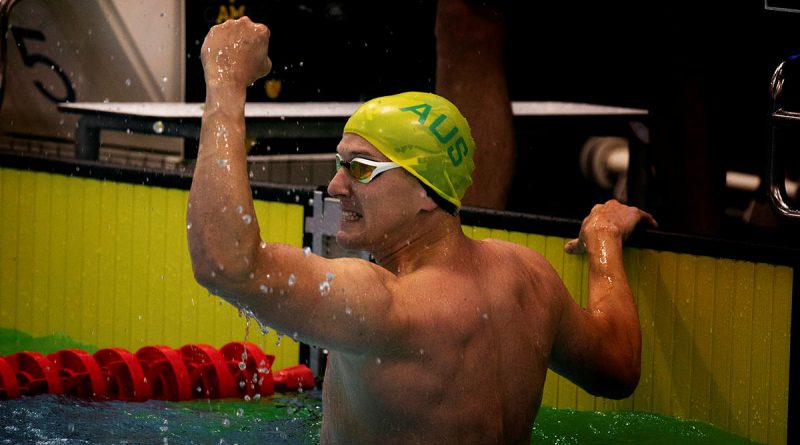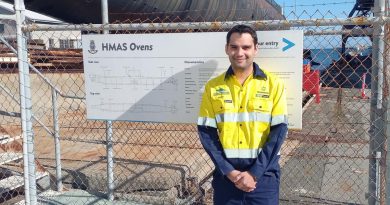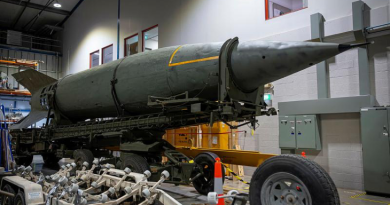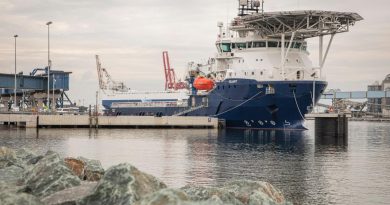Invictus Games: Diving in aids mental health

Returning to the pool during day four of the Invictus Games The Hague 2020 was a particularly poignant moment for Australian team member Chris O’Brien.
CAPTION: Invictus Games 2020 Team Australia competitor Chris O’Brien celebrates after placing first in the men’s ISE 50m backstroke event held at the Zwembad het Hofbad pool in The Hague, Netherlands. Story by Lucy Redford-Hunt. Photo by Sergeant Oliver Carter.
On his way home from his second tour of Afghanistan in 2010, the former Australian Army artillery officer was a first responder to a fatal boating accident in Cyprus.
He said the trauma of the experience had a “big impact on my history as a swimmer”.
“It made it really difficult to enjoy swimming, and it made it difficult to be back in the pool, particularly in competition,” O’Brien said.
“I really struggled to find enjoyment in the pool and I was avoiding swimming.
“I think that it made it really difficult for when I really needed my mental health to be good.
“I was avoiding the pool. I was avoiding my recovery mechanism, so that led to a complete mental breakdown in 2019.”
He found help through Open Arms – a mental health support service for Navy, Army and Air Force personnel – where he was encouraged to start swimming again and eventually applied for the Invictus Games.
“Now being able to get back in the water and compete, at not necessarily the levels that I perhaps used to once upon a time, but certainly this is the first step of what I hope is many steps in the right direction,” he said.
He found the right direction in the pool on day four of competition, winning the men’s ISE 50m backstroke and the men’s ISE 50m breaststroke, as well as claiming silver in the men’s ISE 50m freestyle and men’s ISE 100m freestyle.
Emotions were running high all day and the crowd was electric at the Zwemad het Hofbad pool, with the medals coming in thick and fast for Team Australia.
Taryn Barbara secured her first gold medals of the games, winning the women’s ISE 50m freestyle and women’s ISE 100m freestyle, and earned a silver in the women’s ISE 50m backstroke.
In the men’s ISD 50m freestyle and the men’s ISD 100m freestyle, James Saville took top spot, with teammate Peter William Brown claiming the silver.
It was Brown’s first day of competition.
After testing positive to COVID-19 last week, Brown was unable to travel to the Netherlands with Team Australia, instead arriving on the ground on Monday – less than 24 hours before his first event.
He said he had been blown away by the “love and support” he’s received since arriving in The Hague.
“Everyone is a family here on the ground. It’s about the camaraderie you build – the friendships you build with people from different countries.
“The Invictus Games saved my life.
“It’s given me that drive. It’s given me that purpose to teach my kids that there are periods where you get knocked down and you’ve got to get back up.
“You might not go straight to your path; you might have to go around the bend to make your end destination.
“That’s what these games have given me to teach my kids.”
Emma Murfet added to Australia’s medal haul, with a bronze in the women’s ISE 50m breaststroke, along with Nathan King with his bronze in the men’s ISD 50m backstroke and Andrew Wilkinson’s bronze in the men’s ISE 100m freestyle.
In the final event of the night, Team Australia’s 4x50m freestyle relay team – comprising Andrew Wilkinson, James Saville, Peter Brown and Christopher O’Brien – won gold in a thrilling finish.
In the wheelchair rugby played at Zuiderpark, Team Australia began their campaign with a win as they stormed to victory to defeat Canada 22-7 in the pool stage.
Their second match against Team USA proved to be a bigger challenge. They suffered their first loss,15-10.
The Aussie side took on Team France in their third match of the day to win 16-4 before backing it up to surge to victory in their fourth match against Italy 21-5. In their final match of the day, the Aussie side went down to Team UK in an 18-8 defeat.
.
.

.
.





